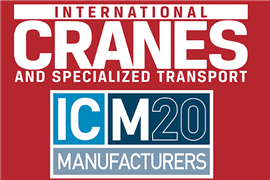Slovak cartel fines upheld
02 April 2014
In the largest cartel case in the history of Slovak competition law, a judgement made in 2006 has been upheld by the Supreme Court of the Slovak Republic, and the six construction companies involved will now have to pay a total of nearly €45 million.
There is no opportunity for a further ordinary appeal, and the conclusions set out by the Antimonopoly Office of the Slovak Republic have been upheld.
In 2006, the Antimonopoly Office imposed the fine on Strabag, Doprastav, Betamont, Inžinierske stavby, Skanska, Mota-Engil, and Engenharia E Construcao, for concluding a cartel agreement.
Two years later the Regional Court in Bratislava, Slovakia, annulled the decision of the Antimonopoly Office. However, in December 2013, the Supreme Court overruled the decision of the Regional Court and dismissed all actions made by the construction companies, upholding the conclusions of the Antimonopoly Office.
The companies have to pay the fines within 30 days from 30 March, the day the judgement became valid.
In 2006, the Antimonopoly Office concluded the companies had engaged in a cartel agreement, violating the provisions of the Act on Protection of Competition and Art, in the Treaty on the Functioning of the European Union.
The Antimonopoly Office said illegal conduct had been associated with the tender for the execution of works for the construction of the D1 highway from Mengusovce to Jánovce – the stretch from 0 to 8 km. It said the companies co-ordinated their behaviour in this tender.
The Antimonopoly Office received an indication of possible anti-competitive conduct from the provider – Národná diaľničná spoločnosť.
Suspicions of anti-competitive conduct committed by bidders in the tender were raised by the high prices they submitted. Six construction companies participated in the tender in the form of two associations founded for the purpose of preparation and submission of their bids. One company participated in the tender independently.
Three bids were submitted, which consisted of complex construction works with nearly 900 price units. The Antimonopoly Office discovered, based on the previous analysis, that the ratio between the price units submitted in each of the tenders showed extremely constant figures.
It said such significant conformity was non-standard and could not otherwise be objectively justified.
STAY CONNECTED


Receive the information you need when you need it through our world-leading magazines, newsletters and daily briefings.
CONNECT WITH THE TEAM










